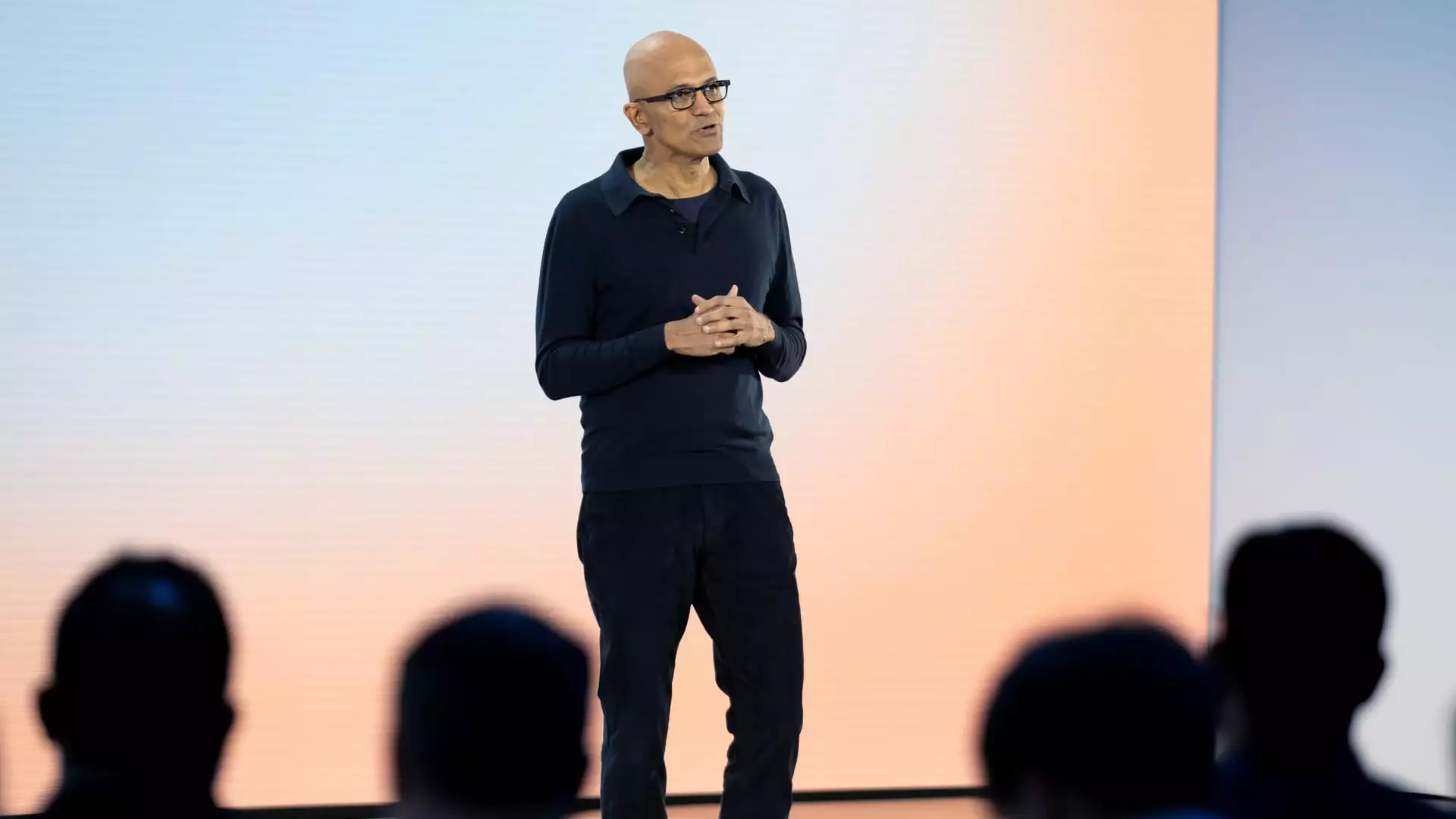Satya Nadella, the CEO of Microsoft, recently received a substantial pay raise for the 2024 fiscal year, elevating his total compensation to an impressive $79.1 million. While this figure represents a notable increase from the previous year’s $48.5 million, it is critical to note that Nadella’s compensation package could have been higher had it not been for cybersecurity incidents and the organization’s response to them. This situation invites a deeper exploration into the complex dynamics of executive compensation, accountability, and corporate governance.
Cybersecurity has become a central focus for corporate leaders, and Nadella’s recent pay adjustment illustrates the direct correlation between cybersecurity performance and executive compensation. The decision to lower Nadella’s cash incentive from an expected $10.66 million to $5.2 million stems from his voluntary request to the board, acknowledging the company’s need to enhance its security measures in light of recent breaches. The incidents involving unauthorized access to high-profile email accounts by foreign entities demonstrate that the stakes are high; any gaps in security can undermine shareholder trust and tarnish corporate reputation.
Nadella’s recognition of the necessity for heightened security measures reflects a growing understanding among corporate leaders that they cannot separate business performance from ethical considerations, especially in the digital age. By voluntarily reducing his compensation, Nadella not only reinforced his commitment to the company’s cybersecurity culture but also set a precedent that accountability extends to the executive level.
The board’s compensation committee plays an essential role in evaluating performance metrics and determining remuneration packages for CEOs. In Nadella’s case, the committee noted that although Microsoft had an extraordinarily strong performance overall, the external pressures presented by cybersecurity threats warranted a more nuanced approach to performance evaluation.
It is encouraging to see how the board acknowledged Nadella’s request, highlighting a progressive stance towards corporate governance. However, this situation raises further questions regarding the balance of power between CEO and board directives. Should such significant leeway in compensation decisions come primarily from the CEO’s appeal, or should it align with standardized metrics that encompass a broader view of organizational health, including risk management?
Shifting Focus Towards Cybersecurity Culture
Nadella’s leadership at Microsoft emphasizes the need for a robust cybersecurity culture that could ultimately benefit the company’s overall performance. Following the Department of Homeland Security’s report, which called for a shift in focus at executive levels to enhance cybersecurity, Microsoft announced it would consider employees’ cybersecurity efforts in compensation assessments going forward. This shift signifies a significant evolution in how corporate success is defined, encompassing not only financial results but also the integrity of security practices.
The decision is not only prudent but essential in a landscape teeming with evolving threats. As Microsoft reported over $20 billion in revenue from its security business in 2022, the imperative to develop a trustworthy and secure operational framework becomes evident. The relationship between corporate success and security effectiveness illustrates that investing in cybersecurity is not merely an expense but a strategic advantage.
As leaders navigate the complexities of a rapidly changing technological landscape, the notion of accountability must evolve as well. Nadella’s recent pay raise and the accompanying cybersecurity challenges provide a compelling case for CEOs to assume responsibility for the overall integrity and security culture of their organizations. The precedent set by Nadella in adjusting his compensation offers a new paradigm where corporate leaders acknowledge their role in fostering security while driving business performance, ultimately leading to a more resilient corporate structure.


Leave a Reply